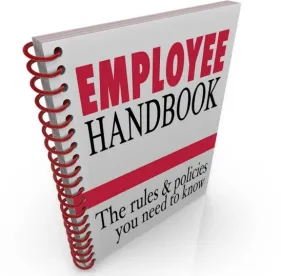As we approach the new year, now is a great time to review and update employee handbooks. The regulatory authorities, both federal and state, have imposed a number of new obligations on employers. Below is a list of the top five policies that employers should consider updating for their 2016 employee handbooks:
1. Social Media
Many employees now use Facebook, LinkedIn, Twitter and other social media. Employers may need handbook policies that address issues such as what communications are prohibited and the consequences of “misuse” of social media relating to employment or the employer. Employers need to be careful of how they craft these policies, as the National Labor Relations Board (NLRB) is increasingly reviewing employer limitations on employee social media usage as a potential unfair labor practice under the National Labor Relations Act. Recent cases finding a Facebook “Like” to be protected show the need to make sure that your policy is compliant.
2. Paid Sick Leave
A number of states (Connecticut, California, Massachusetts and Oregon) and numerous counties and cities require employers to provide paid sick leave to employees. Employers operating in multiple jurisdictions need to be aware of the state and locals laws and modify their policies as a result. The same employers need to consider whether one group of employees in one location may be eligible for more leave than other employees in other locations.
3. Confidentiality Provisions
Many companies have handbook provisions regarding protection of confidential information. We recommend non-disclosure, return of property, duty of loyalty and use of company ESI/email policies be included in handbooks as well. How expansive the listing of what is “confidential” information can create problems. The NLRB opines that handbook policies are unlawfully overbroad if they give employees the impression they cannot discuss wages, hours and other terms and conditions of employment with fellow employees.
4. Family Medical Leave Act (FMLA)
Some employers have made it through 2015 without having updated their FMLA policies in years. The FMLA is an ever-changing law, and as state leave laws continue to be in flux, so a periodic review is recommended.
5. Leaves of Absence/Reasonable Accommodations
In reviewing handbooks, we often see policies that strictly define what leaves of absence are available to employees or limit the amount of time that can be taken off. However, the Americans with Disabilities Act requires that reasonable accommodations be provided to individuals with disabilities, which may include time off from work. It is not a defense to a failure to accommodate claim to point to handbook language that limits the conditions under which a leave of absence will be allowed or puts limits on the amount of time that can be taken.
It is essential that employers seek counsel before making changes to their handbooks. There is no one-size-fits-all employee handbook and not all employers are required to implement all employment laws depending on their size and location. In addition, when employers consider adapting or adopting new policies, they should make sure employees are aware of the changes, obtain signed acknowledgement forms from employees and implement the new policies uniformly.





 />i
/>i

